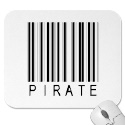 When I started writing music in in my teens, I didn’t even think about how to begin. I just did what every other starting writer does – I copied, emulated, plagiarized and otherwise ripped-off everything I’d enjoyed from the music I’d listened to thus far. Badly.
When I started writing music in in my teens, I didn’t even think about how to begin. I just did what every other starting writer does – I copied, emulated, plagiarized and otherwise ripped-off everything I’d enjoyed from the music I’d listened to thus far. Badly.
Deprived of divine inspiration, it wouldn’t have been possible any other way. Show me a composer who hasn’t committed at least one of the above at some point and I’ll show you someone who spontaneously learned how to speak as a child without hearing others do so.
It was for these reasons I was horrified when MBW reported this week that Spotify has filed for a patent to scan music uploads so that they can be assessed for potential plagiarism. The theory is that if a track (or part thereof) is deemed to be too similar to a preexisting track, the artist can adjust their creation, thereby avoiding accusations of plagiarism and potential copyright infringement lawsuits in the future.
Without condoning professional musicians who think it’s acceptable (it’s not) to copy large parts of others’ tracks and pass them off as their own, it worries me that a computer program could end up with the power to stop an artist in their tracks and tell them to take another route.
There are dozens of millions of songs on streaming services today and millions more besides. So, go ahead and hum a six-second tune of your own making right now. Guess what – someone, somewhere has done that before. Now hum another original tune without being influenced by any music you’ve ever heard in the past. You can see where this is going.
Of course, we don’t know how or even if this technology will ever be used. It might be deployed moderately but if not, the thought of needing to obtain some kind of permission from an algorithm that could, in the future, have access to a database of every song ever made, sounds a bit like an episode of Black Mirror to me.
Some may be thinking, “You watch too much Black Mirror”, and those people would be right. But imagine if this future technology fell into the wrong hands and was aggressively used to scan all of the music made thus far for ‘plagiarism’? There wouldn’t be enough copyright troll lawyers to go round. Or, imagine it comes pre-installed in your music software, stopping you in your creative tracks whenever it detects a collision.
The thing about music is that it can’t develop or evolve without some kind of plagiarism, or ‘influence’ if you prefer a less loaded word. Proof of that is proudly on display when we search by genre, a particular decade, or music from a geographical region, because these artists copy from each other to perpetuate a style. Indeed, to a certain extent, and when it’s not carried out at the expense of others, music lovers enjoy a bit of copying because we know what we like and we want more of it.
But, apparently, the threat of being subjected to a copyright lawsuit in the future is now so severe, artists might need to double-check with a computer that they haven’t accidentally ‘discovered’ someone else’s combination of notes, chords, or rhythms, having got there too late. Sad really.
Finally, this piece would not be complete without a reference to what I and many others believe is one of the most important few seconds in recent musical history. I’m talking about the ‘Amen Break‘ from The Winston’s 1969 track ‘Amen, Brother’. This snippet of music has been plagiarized, ripped-off, stolen, and otherwise utilized in thousands and thousands of tracks for the last 50 years.
There seems little doubt that had the proposed Spotify system or one like it been around the first time this sample was used without permission, the uploader would’ve been gently advised that this had been done before. Taking that to its logical conclusion, that loop would’ve been denied the chance to inspire thousands of artists to make music people love.
Recycling is good and plagiarism isn’t always bad. Humans are programmed to copy. Let’s not get too carried away when nobody is getting hurt.





